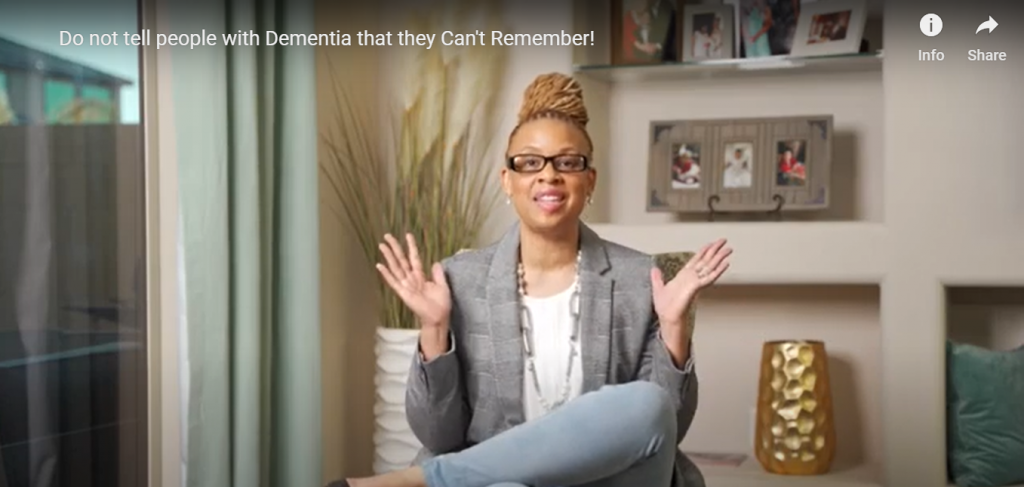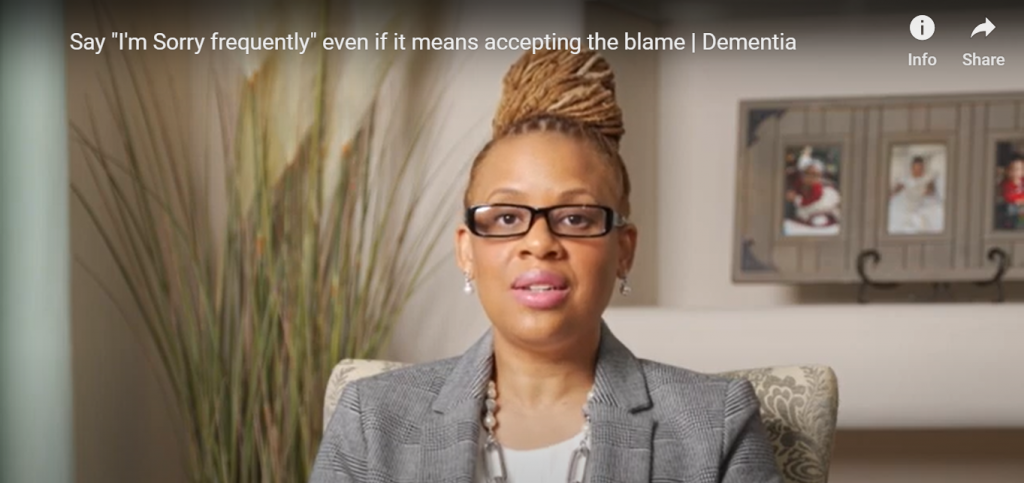
How Living in Their Reality Helps Those with Dementia
Have you ever tried to converse with someone who has dementia, only to find that their reality seems different from your own? Have you been tempted to correct them or bring them back to what you perceive as reality?” If you answered yes to these questions, then you’re not alone. Many caregivers and family members of individuals with dementia struggle with this dilemma. However, what if we told you that trying to bring them back to our reality might not be the best approach. What if we could enter their world and make their journey through dementia a little bit easier.
Let’s explore how embracing their reality can improve their quality of life and strengthen your connection with them.
Why Correcting People with Dementia Doesn’t Work
1. Heightened Anxiety: Telling someone with dementia what they believe is not correct can lead to increased anxiety and frustration. They may feel embarrassed or upset about their inability to remember or comprehend certain things.
2. Agitation and Aggression: Challenging a person’s reality can escalate into agitation or even aggression. This can create an unsafe and uncomfortable environment for both the person with dementia and their caregivers.
3. Loss of Dignity: Correcting someone’s reality can strip them of their dignity and sense of self-worth. It’s essential to treat individuals with dementia with respect and compassion, even when their version of reality differs from our own.
Quick Tips for Living in Their Reality
Here are a few quick tips for living in the reality of a person with dementia:
1. Listen Actively: Pay close attention to what they’re saying, even if it seems disconnected from the present. Responding to their words and emotions validates their feelings.
2. Validation: Validate their feelings and experiences.
Acknowledge their emotions, even if you disagree with their perception of reality. For example, if they insist that they must go to work (even if they retired years ago), respond empathetically by saying, “It’s your day off; you scheduled that time to spend with your family.” This response validates their feelings.
3. Empathize: Try to understand their perspective and the emotions they are experiencing. This can help you respond in a more compassionate and supportive way.
4. Redirect Rather Than Correct: If the person becomes fixated on something that could be harmful or distressing, gently redirect their attention to a different topic or activity. For instance, if they’re convinced they need to leave the house in the middle of the night, suggest a storm is coming and it is unsafe to go outside.
5. Be Patient: Understand that repetition and confusion are common in dementia. Instead of becoming frustrated, practice patience and compassion.
6. Create a Calm Environment: Reduce distractions and create a calming atmosphere to help ease anxiety or agitation.
7. Join in Their World: If they believe they are in a different time or place, engage with them in the world they are in. Share their joy, their memories, and their feelings.
Real-Life Example
To illustrate the power of living in someone else’s reality and truth, let’s take a look at the heartwarming story of Wilma and her daughter, Lolita. Wilma has dementia, and her daughter, Lolita, has learned the art of living in her mother’s reality and truth.
One day, Wilma told Lolita that the clothes in her closet were not hers. Instead of correcting her or trying to convince her otherwise, Lolita chose to embrace her mother’s perspective. She told Wilma that those were her own clothes and that she had put them there for her. This simple act made Wilma happy and less frustrated, making her feel more comfortable.
Another time, Wilma came to Lolita with a strange claim – she believed her caregiver had put food in her purse. Despite knowing this wasn’t true, Lolita didn’t challenge her mother’s reality. Instead, she chose to connect with her mother on a deeper level. Lolita played along, saying the caregiver must have been hungry and put food in her purse. They shared a moment of laughter and joy as they gossiped like they used to in the past.
Lolita created a safe and comforting space for her mother by living in Wilma’s reality and truth. She allowed Wilma to feel heard and understood, even in the midst of confusion and uncertainty. These moments of connection and happiness are invaluable for the person with dementia and their caregiver.
Conclusion
Remember, our goal as caregivers is not to force our reality but to provide comfort, support, and empathy. By choosing to live in their reality, we can make their journey with dementia more peaceful and meaningful. It’s a small act of compassion that can make a world of difference.



